EP campaign without anything European?
Published on
On 1 May 2009 a new campaign had been launched in Hungary. Considering that there is a constant campaign in the country since almost 2 years this is really not a phenomenon that makes voters thrill up. Even tough they should do so. Because others will decide instead of them if they keep off from polling.
It is more of less clear what Hungarians will vote about on 7th June: about politicians to be delegated to the European Parliament the only directly elected institution of the EU that has growing rights and duties. But how to decide it and especially on the basis of what kind of information? This is a more difficult question.
Photo gallery of EP campaign posters included.
During the past couple of day number of city lights, billboards and outdoor media tools had been constantly growing on the streets of Budapest: they infest step by step all the main roads, sides of motorways, bus stops and neighbourhood of prefabs. The quantify of them are not at the same level as that at the time of general elections that could might as well make people think that EP elections are not that much important neither for the parties.
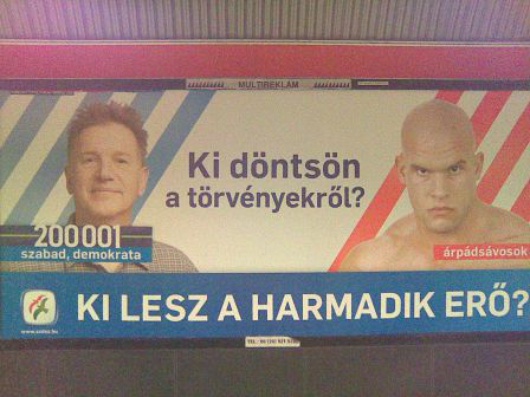 The outdoor media campaign had been started by the small parties – namely the liberal SZDSZ and the centre-right MDF – manoeuvring close to or rather below the get-into threshold (5%). It’s understandable since they risk more on these EP elections. MDF is campaigning with an ex-politician at the head of the list who’s name rings a bell to most of the families in Hungary: Lajos Bokros is a former minister of finance introducing strict austerity programmes and cost-cut reforms in 1995 (the so called Bokros-package) and currently an economist professor in the Central European University. The liberals put at the focus of their campaign anti-far-right messages and try to outline the disadvantages of a possible two-party system.
The outdoor media campaign had been started by the small parties – namely the liberal SZDSZ and the centre-right MDF – manoeuvring close to or rather below the get-into threshold (5%). It’s understandable since they risk more on these EP elections. MDF is campaigning with an ex-politician at the head of the list who’s name rings a bell to most of the families in Hungary: Lajos Bokros is a former minister of finance introducing strict austerity programmes and cost-cut reforms in 1995 (the so called Bokros-package) and currently an economist professor in the Central European University. The liberals put at the focus of their campaign anti-far-right messages and try to outline the disadvantages of a possible two-party system.
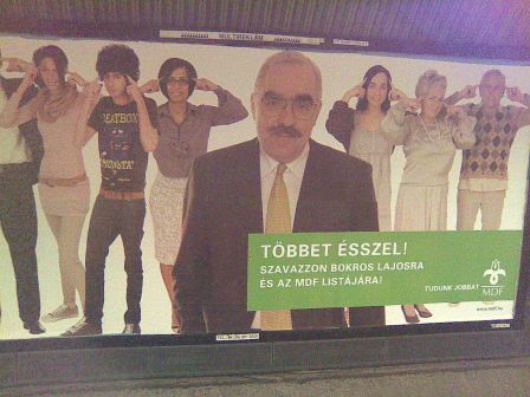 Couple of weeks ago the two big parties the socialist MSZP and the alliance of the conservative Fidesz and KDNP had been also started its outdoor media campaign. (It’s interesting to see that though in most of the European capitals such media surfaces looses their popularity and the placing of them are strictly regulated, in Budapest there is no plan to keep the cityscape free from such visual waste.)
Couple of weeks ago the two big parties the socialist MSZP and the alliance of the conservative Fidesz and KDNP had been also started its outdoor media campaign. (It’s interesting to see that though in most of the European capitals such media surfaces looses their popularity and the placing of them are strictly regulated, in Budapest there is no plan to keep the cityscape free from such visual waste.)
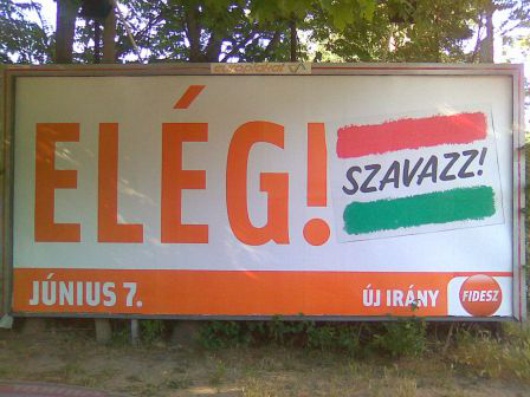 The Socialists puts to the front the expertise of their politicians placing former foreign affairs minister Kinga Göncz at the head of the list, while Fidesz are campaigning simply with the word enough ("Elég" in Hungarian) making the impression that EP elections could have effect also on internal politics. Like in most of the European countries all the moments of the EP campaign are pervaded by internal politics in Hungary. It’s not surprising if we bear in mind that there was a change of government a month ago (following the resignation of Prime Minister Gyurcsány his minister for economy Gordon Bajnai formed a new cabinet in mid-April) and the latest polls shows 36% support for the opposition Fidesz and only 11% for the governing MSZP among inhabitants over the age of 18.
The Socialists puts to the front the expertise of their politicians placing former foreign affairs minister Kinga Göncz at the head of the list, while Fidesz are campaigning simply with the word enough ("Elég" in Hungarian) making the impression that EP elections could have effect also on internal politics. Like in most of the European countries all the moments of the EP campaign are pervaded by internal politics in Hungary. It’s not surprising if we bear in mind that there was a change of government a month ago (following the resignation of Prime Minister Gyurcsány his minister for economy Gordon Bajnai formed a new cabinet in mid-April) and the latest polls shows 36% support for the opposition Fidesz and only 11% for the governing MSZP among inhabitants over the age of 18.
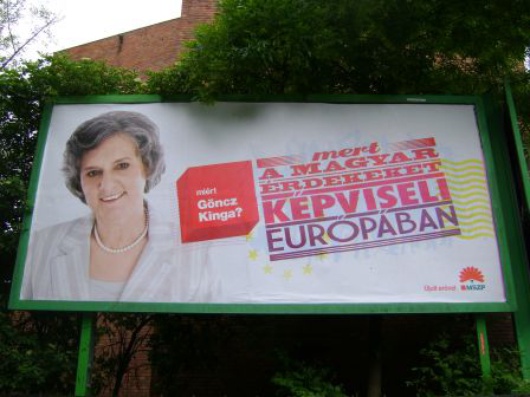 But after taking into account all of these it is still very exasperating and disappointing that after a long and deep search on the Internet I managed to find only some pieces of information about the concrete European programme of the parties. From the communication point of view giving clear and easy-to-understand messages could be effective in the battle for votes but on the other hand it could have a negative consequence of growing scepticism and disillusionment of politics that is already reaches high ratio among the high-educated middle class in Hungary.
But after taking into account all of these it is still very exasperating and disappointing that after a long and deep search on the Internet I managed to find only some pieces of information about the concrete European programme of the parties. From the communication point of view giving clear and easy-to-understand messages could be effective in the battle for votes but on the other hand it could have a negative consequence of growing scepticism and disillusionment of politics that is already reaches high ratio among the high-educated middle class in Hungary.
After carefully studying the big citylights for an average elector it is even difficult to find out which party belongs to which faction in the European Parliament and does it think about the main stakes of the EU debate? Is it in favour of further enlargements or the liberalization of the single market? What does it think about the reform of the Common Agricultural Policy? What kind of means does it prefer in the fight against climate change? etc. That’s more than a pity that we do not have direct information about it since the answers these are the questions that will determine Europe’s agenda during the next five years. Especially because the biggest political group of the European Parliament is able to delegate the president of the Commission having utmost influence on the legislative programme of the European Union.
Alike national parliaments members of the European Parliament also forms factions in order to increase their effectiveness and political influence on decisions. And since there is no faction without discipline they also have to push the voting button according to the decision taken by the majority of the members of their political group not necessarily match their national interest. During the past parliamentary cycle there were only several times out of the approximately 10 000 votes when Hungarian MEPs had turned against their political group’s decision and pushed the button according to the Hungarian interest. Even if we accept that this is how politics works it is still bizarre that the campaign does not tell much about the European political groups’ priorities and programmes. In practice joint voting between HUN MEPs had been carried out in issues being strategically important from the Hungarian point of view such as minority questions or the 2007-2013 budget debate.
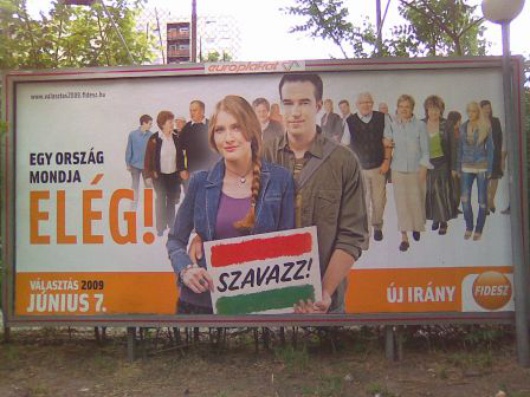 I can only hope that once our political culture will also reach the European level and voters do not have to look for the important information with magnifying glass anymore.
I can only hope that once our political culture will also reach the European level and voters do not have to look for the important information with magnifying glass anymore.
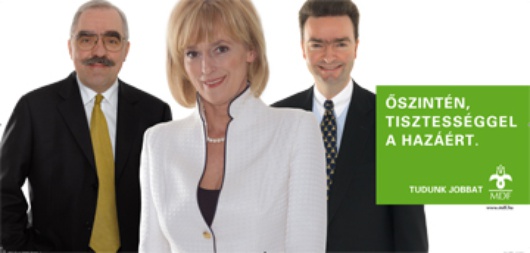
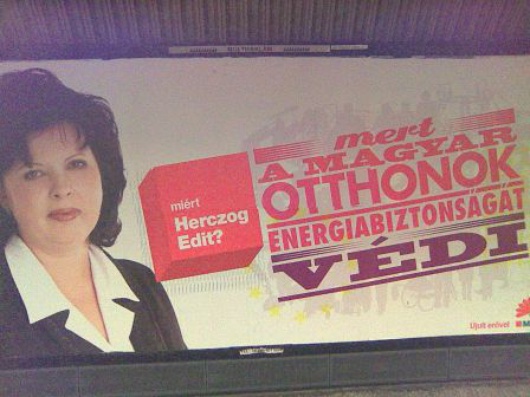
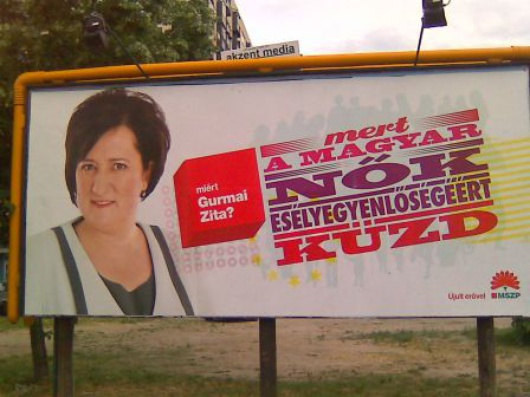
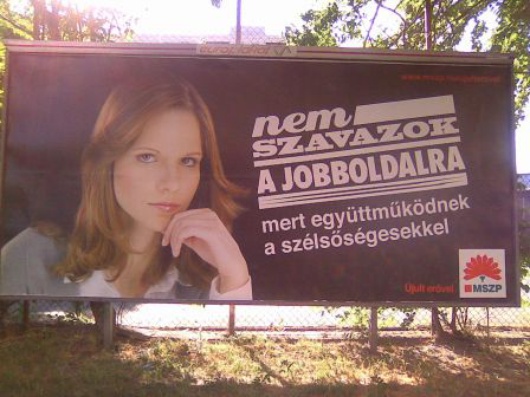
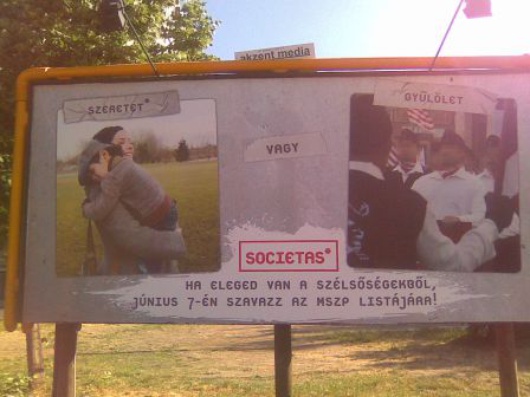
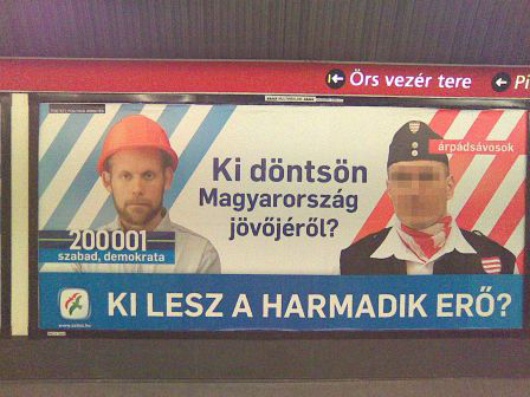
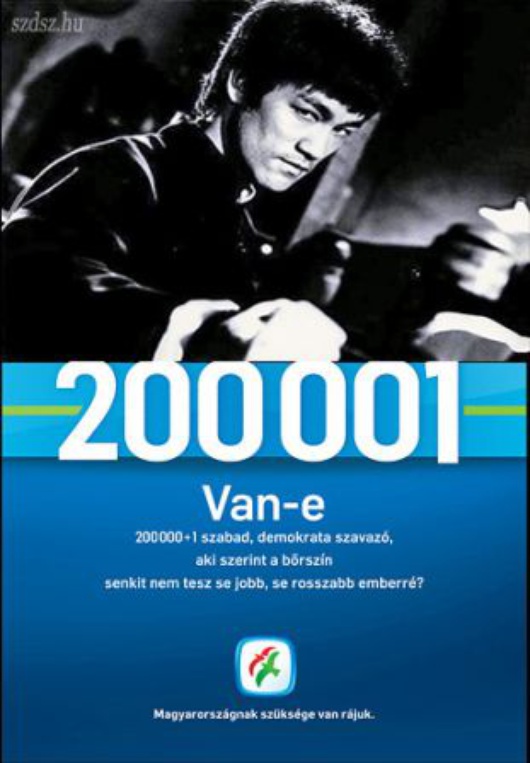
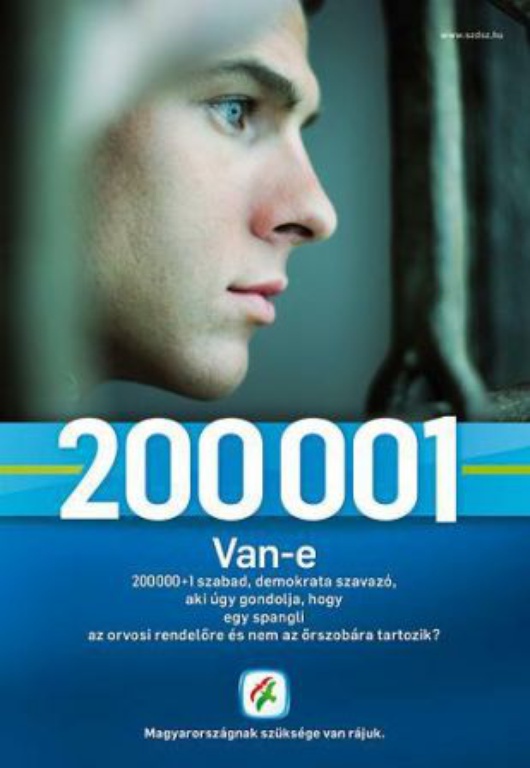
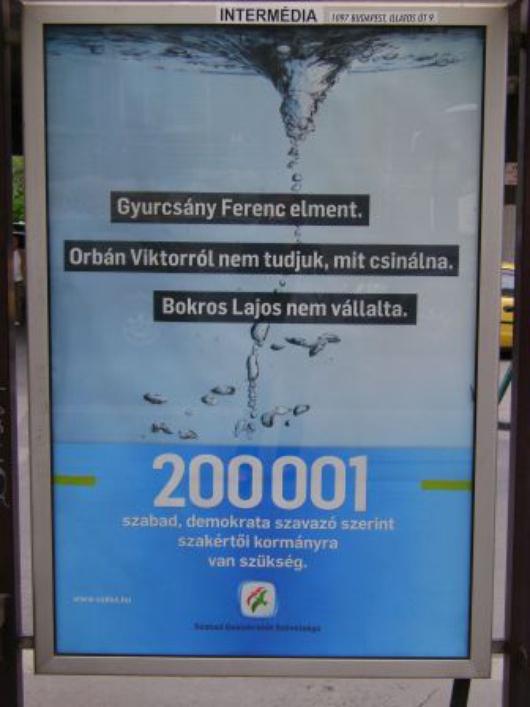 Are more to come...
Are more to come...
Photos: own in general, plus few downloaded from the given party's website.



